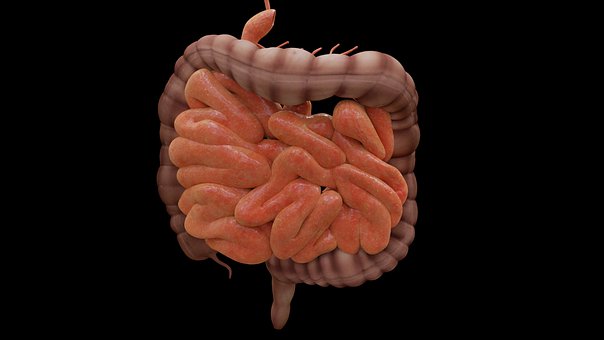The Gut-Real Hero of The Health
In today’s fast life people are suffering from gut issues. Mostly the generation of 21 to 30 years are suffering from digestive diseases. After Covid- 19, these problems are seen more because many people lost their jobs and family members in the covid pandemic.
To survive in this situation and mitigate the financial crisis, poor eating habits and sedentary lifestyle are followed to focus on the job.
Moreover, these lifestyle cause digestive disorders such as indigestion, constipation gas trouble- bloating, weight gain, obesity, celiac disease, ulcerative colitis, irritable bowel syndrome and Crohn’s disease.
Additionally, Many people also became victim of depression, anxiety, stress and over thinking in this pandemic and there is direct connection between mental health and digestive health.
First, we have to understand, What Is Gut?
https://sparklinglifestyle.in/10-strategies-to-improve-digestion/

Your small and large intestines, which are part of the gastrointestinal canal (GI tract) are together called the Gut.
The GI tract is a long twisting tube starting from the mouth, pharynx, esophagus, stomach, small intestine, large intestine, rectum and to the anus.
The GI tract is about 30 feet long muscular tube.
What is Gut flora?
The Gut is host to about 100 trillion of microorganisms known as Gut Flora or gut microbiome. Their functions such as digesting food, absorbing nutrients, regulating metabolism and immune function and removing toxins from the body.
Flora includes live many bacteria, fungi, viruses and other organisms. Everyone has a unique gut flora. A mixed and diverse (good and bad bacteria) combination of bacteria is considered healthy.
Good and bad bacteria; –
A certain level of bad bacteria doesn’t create any problem, but when the quantity of bad bacteria increases which causes inflammation and other infectious disorders.
The environment of the gut depends on growth and development of good bacteria and restriction of bad bacteria.
The main job of good Bacteria (Lactobacillus) is to keep the body neutral and healthy.
When illness comes, the bad bacteria enter the body and knocks the body out of control or vice versa when bad bacteria increase in number, the body has to deal with infectious disorders.
Why is Gut called the “Second Brain”?
The Gut has its own nervous system called The enteric Nervous System (ENS).The ENS relies on the same type of neurons and neurotransmitters that are found in the central nervous system.
100 million Nerve cells that are in constant communication with the brain. Exactly, how the first brain has its neural pathway of communicating with the spine. That is why some medical practitioners call it “second brain”.
The Gut- Brain connection; –
The ENS communicates with the gut physically, emotionally and psychologically too. Sometimes you have felt “butterflies” in the stomach before such a situation because the digestive tract is sensitive to emotion such as anger, anxiety, sadness and extreme happiness.
These can all trigger symptoms in the gut. This activation is known as “fight and flight” response (Sympathetic nervous system-SNS). Instestine produces over 85 to 90% of body serotonin, the hormone that regulates our emotions.
Flora also produces GABA (Gamma aminobutyric acid) which helps to control feelings of fear or anxiety. Technically the Gut and the Brain communicate through a neural network called the “Gut-Brain Axis (GBA).
The CNS of the brain communicates with the ENS of the gut via the parasympathetic Vagus nerve. This is the very most important nerve of the body and connects the brain and the colon. Vagus nerve sends signal in both directions.
For example, in such studies, stress reduces the Signal sent through the Vagus nerve and also causes gastrointestinal problem.
Similarly, that people with IBS (irritable bowel syndrome) and Crohn’s disease had reduce the function of the Vagus nerve indicating reduction of vagal tone.
An interesting study in animals found that feeding them a probiotic reduces stress. However, when their Vagus nerve was cut, the probiotic had no effect. Probiotics can increase the production of GABA and reduce anxiety and depression.
That shows there is also a direct connection between vagus nerve stimulation and taking probiotics, just like the intestine and the brain connection. Simply, probiotics are live good bacteria that protect the intestines, stimulate the Vagus nerve and calm the mind.
Other study shows that the Flora produce lots of short chain fatty acid (SCFA). SCFA is responsible for the brain function.
For example, reducing appetite, reducing food intake and reducing brain reward activities.
On the other hand, the gut microbes that produce which are important for forming the barrier between blood and the brain, termed as “Blood-Brain Barrier” (BBB).
Besides, BBB shields the brain from toxic substance in the blood, supplies nutrients to brain tissues and filter harmful substances from the brain back to the blood stream.
BBB is layer of endothelial cells around the brain, that protect the brain.
What is Leaky Gut?
Gut brain axis connects through the immune system. If the immune system suppresses for a long time, it leads to inflammation in the intestinal endothelial cells which may cause brain disorder.
In addition, Some bad bacteria make LPS (Lipopolysaccharide), which is an inflammatory toxin, when it passes from the gut in to blood, cause inflammation. This can happen when the intestinal barrier becomes leaky.
Furthermore, When the lining of Small intestinal walls start to loosen, then LPS and the other toxic substances crossover and leak into bloodstream called leaky gut.
Causes of leaky gut and unhealthy gut are stress, eating processed and packaged food, inflammation, consuming excessive antibiotics and antacids, consuming excessive gluten, consuming excess sugar, overconsumption of alcohol and drugs, long term laxative use. Due to these reasons, the good gut bacteria diminish.
Symptoms of unhealthy gut; –
Dysbiosis is an imbalance of gut microbiome.
Constipation, diarrhea, bloating, nausea, heartburn, vomiting, weight changes, sleep disturbance, fatigue, skin issues and hormonal fluctuations.
Tips for restore and maintain good gut health; –

(1) Maintain stress level; – Chronic stress level affects very hard on gut for lowering the stress- meditating, walking, spending time with friends, limiting alcohol intake and join laughing club will be helpful.
(2) Get adequate sleep; – Try to maintain sleep and wake up time similarly. Before 10 minutes of sleep, do meditate and take chamomile tea. Sleep deprivation may cause serious impact on the gut health.
(3) Eat a balanced diet; – Take balanced Complex carbs, moderate protein and healthy fats in every meal.
(4) Take probiotics and prebiotics; – As we learned earlier, probiotics maintain good gut health as well as stimulate Vagus nerve which causes a calming brain effect.
Similarly, Prebiotics provide food for good and live gut bacteria.
Probiotics- Curd, buttermilk, fermented food, cheese, probiotic sachets from Medical Store.
Prebiotics- Dietary fiber, fruits, rice and vegetables.
(5) Eat slowly- Eating slowly means food mixes with saliva easily, digestion Start from the salivary gland that may reduce discomfortness of digestion and maintain a healthy gut.
(6) Relieve constipation; – Prepare powder for digestion and relieve constipation at home.
500 gms flax seeds
250 gms carom seeds
250 gms cumin seeds
150 gms fennel seeds
50 gms fenugreek seeds
100 gms haldi powder
200 gms triphala powder
After roasting these seeds, grind them and mix well.
Consume at night,2 tsp with 1 glass of water, every day.
This home remedy will provide a healthy gut, clear constipation and optimal health.
In conclusion, recognizing the role of diet and lifestyle on intestinal health helps us appreciate the importance of nurturing and maintaining a healthy digestive system.
In summary, by prioritizing intestinal health, we can enhance our overall well-being.


Leave a Comment